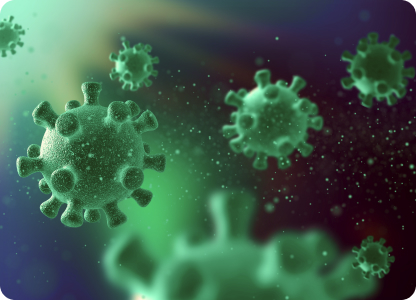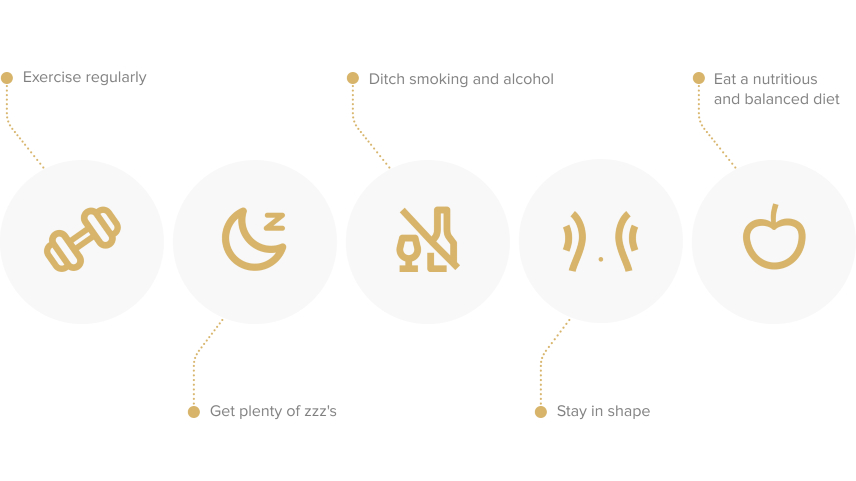The ABCs of Immunity: What It Is and How It Works

Finding yourself sniffling and feeling just a little more tired than usual? Your natural immunity might be hard at play, defending you from the common colds and flu that roam around this season. But how does our immune system work and what is it made of? If you’re keen on finding out more about our very own immunity system and how to support it, you’ve come to the right place.
Everyone’s probably heard of our immunity system, but it might be hard to define what it does. In basic terms, the immune system first recognizes a pathogen, tags it for removal, and then destroys it1. That way, the pathogen, commonly being a bacteria or a virus, doesn’t make our body a home and make us sick.


Our immune system – key players
The body’s natural immunity involves players on different scales. These include parts of the body like the bone marrow, the tonsils, and the lymphatic system, that carry immune cells. Additionally, it has a myriad of immune-specific cells that play their roles:
- Phagocytes – these are cells that “eat” pathogens to get rid of them.
- Lymphocytes – these are cells that help to recognize and remember pathogens. These include:
- T-cells – these can coordinate immune response and kill specific pathogens;
- B-cells – these help the body remember cells and make antibodies that help let the T-cells know what to destroy;
- Natural killer cells – like their name, they get rid of many types of pathogens.
Our body needs to recognize what is the body and what isn’t (and shouldn’t be in) the body. Our natural immunity, or innate immunity works at that. The cells can find patterns associated with pathogens, allowing them to understand whether a pathogen is present. Additionally, it involves things that act as our first line of defence, such as our skin and our organ linings2.
Our developed, or adaptive immunity relies on T and B cells and antibodies, which recognize specific pathogens. They work together with the innate immunity to get rid of the infection. The adaptive immunity usually kicks in a little bit later than the natural3. This is the type of immunity that vaccines can boost.
Remembering the threat – primary and secondary responseOur immunity system is great at remembering illnesses we’ve already encountered. When we encounter a threat for the first time, the body takes the time to not only fight the pathogen but also to memorize what it is. It does that by producing memory B-cells which are specific to the pathogen. This is called the primary immune response4.
When we encounter the same pathogen later, our immunity can recognize that we’ve seen the pathogen before and kick in quicker. This is called the secondary response5.
How to look after the immune system
Our diet is probably one of the most important aspects of immunity. If you’re having trouble meeting your daily micronutrient requirements, try Multivitamin Gummies. They’re a quick and delicious way to get everything you need for great health. Daily Caps provide a great option for all the micronutrients you need if you’re having trouble reaching your target intake.
Additionally, there are specific nutrients that can benefit our immunity, providing it with an immunity booster. Vitamin C for example, is needed for B-cells to grow and make antibodies6. A great way to get the vitamin is through citrus fruits, vegetables like peppers, and Maxler Vitamin C Gummies 500 mg. Vitamin C Sodium Ascorbate is a great option for a vitamin C supplement that’s gentle on your stomach. Alternatively, Vitamin C + Zinc makes a powerful fizzy immune support.
Many immune cells, including B and T cells, need vitamin D for optimal function7. For a dose of the vitamin your whole family can enjoy, try D3+K2 Gummies.
Other immune-supporting nutrients include curcumin, which helps B, T, and natural killer cells work8. Try adding some of the spice into your meals, or simply take Turmeric Curcumin with BioPerine for a highly bioavailable dose of the nutrient. Curcumin Omega-3 is a great way to get some curcumin in a bioavailable form that the body can absorb.







